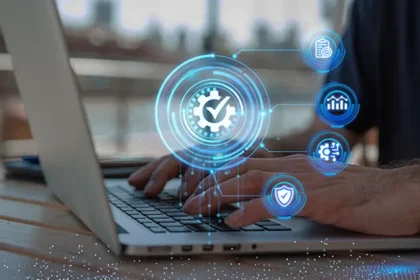These days cybersecurity isn’t optional – it’s a necessity. Cyber threats are becoming more sophisticated, costing businesses millions with a reported 10% increase from 2023. With these growing threats, every business needs to think about how to protect itself from online attacks.
Interestingly, iGaming platforms have been doing this for a while. Because these platforms handle massive amounts of user data and financial transactions daily, they’re forced to stay one step ahead of hackers. Businesses in all fields can learn from the cybersecurity methods used in iGaming.
The Unique Cybersecurity Challenges in iGaming
iGaming platforms face unique cybersecurity challenges. These platforms are attractive to many players, which makes them tempting targets for hackers because the sites deal with lots of money, transactions, and sensitive customer information.
Gamers want to wager online with real money but they also want to be safe while playing games like poker, blackjack, or slots on the internet. According to Casino Expert Sergio Zammit, many players want to find the best online slots to play with real money, and they trust these platforms to keep their information safe (source: https://www.business2community.com/online-casinos/slots). As a result, iGaming platforms need strong security measures to make sure players are safe while also enjoying themselves.
Some common risks that iGaming sites combat to ensure player safety are:
- High Volume of Transactions: iGaming sites handle countless transactions daily—deposits, withdrawals, and bets.
- User Data Protection: iGaming platforms collect lots of personal information, like names, addresses, and payment details. It is important to keep this data safe to stop unauthorized withdrawals and identity theft.
- Fraud and Money Laundering: Online gambling can be a target for financial crimes, so platforms need advanced tools to find and stop fraud.
- Real-Time Data Processing: Bets are placed, games are played, and results appear in real-time. Any interference could cause unfair results and make users lose trust.
Given these risks, iGaming platforms have invested heavily in cybersecurity.
Lessons from iGaming Cybersecurity
To protect their platforms, gaming sites use the following strategies, which other businesses can benefit from adopting.
Encryption and DDoS Protection
- Encryption: iGaming platforms prevent unauthorized access to players’ accounts by using encryption to scramble user data—like passwords and credit card details—so it’s unreadable to hackers. They also use special tools like the Data Loss Prevention (DLP) system, which monitors data movement and blocks unauthorized transfers.
- Distributed Denial of Service (DDoS): iGaming sites use DDoS protection services which can shield websites from overwhelming attacks by diverting harmful traffic. Investing in the above is good for any business that handles customer information, like email addresses or payment details. Encryption makes it harder for hackers to steal or misuse client information, saving businesses millions. In 2024 IBM reported that data breaches led to around $4.88 million in losses, which shows how important strong encryption can be.
Advanced Security Measures
- 2FA and MFA: Many iGaming platforms use two-factor authentication (2FA) to double-check users’ identities before they log in. This might mean entering a password and getting a one-time code sent to their phone. Some platforms go even further with multi-factor authentication (MFA), which asks for several ways to prove who you are, like a password and a code. Using 2FA is an easy way to make your business safer as it makes it harder for hackers to break into your accounts. Microsoft reports that MFA can prevent automated attacks by nearly 99.9%. Whether you’re a small or a big company, turning on 2FA or MFA for employees and customers is a smart and simple move.
- Behavioral Analytics: iGaming sites monitor user behavior to catch anything unusual in real-time. They use Artificial Intelligence (AI) and Machine Learning (ML) to spot suspicious behavior. For example, if a customer suddenly starts placing high-stakes bets that don’t match their history, it could be a sign that someone else is using their account. The system can flag this as suspicious.
Businesses can learn from iGaming sites and catch suspicious activity before it causes harm by using behavioral analytics. For example, if an employee logs in from an unusual location or makes an unusual number of data downloads, it could be a sign of potential trouble.
Businesses can set up automated alerts to notify security teams of unusual activities to quickly investigate and stop potential fraud. Many companies, especially in finance, healthcare, and retail, can benefit from this technology.
Regular Security Audits
Because of the high stakes, iGaming companies perform regular cybersecurity audits to comply with regulatory standards.
They also constantly monitor their networks and systems for signs of potential weaknesses before they become serious problems using these audits.
Every business should regularly assess its cybersecurity. This way, they ensure their security is up-to-date and follow all the rules. This could mean conducting a cybersecurity audit every few months or bringing in an external cybersecurity expert to review systems annually. Regular audits can prevent issues from going unnoticed until it’s too late.
Conclusion
Cyber threats are constantly lurking; taking cues from an industry as high-stakes as iGaming can help any business bolster its cybersecurity defenses. As data breaches rise and cyberattacks evolve, proactive cybersecurity saves businesses time, money, and reputation.










